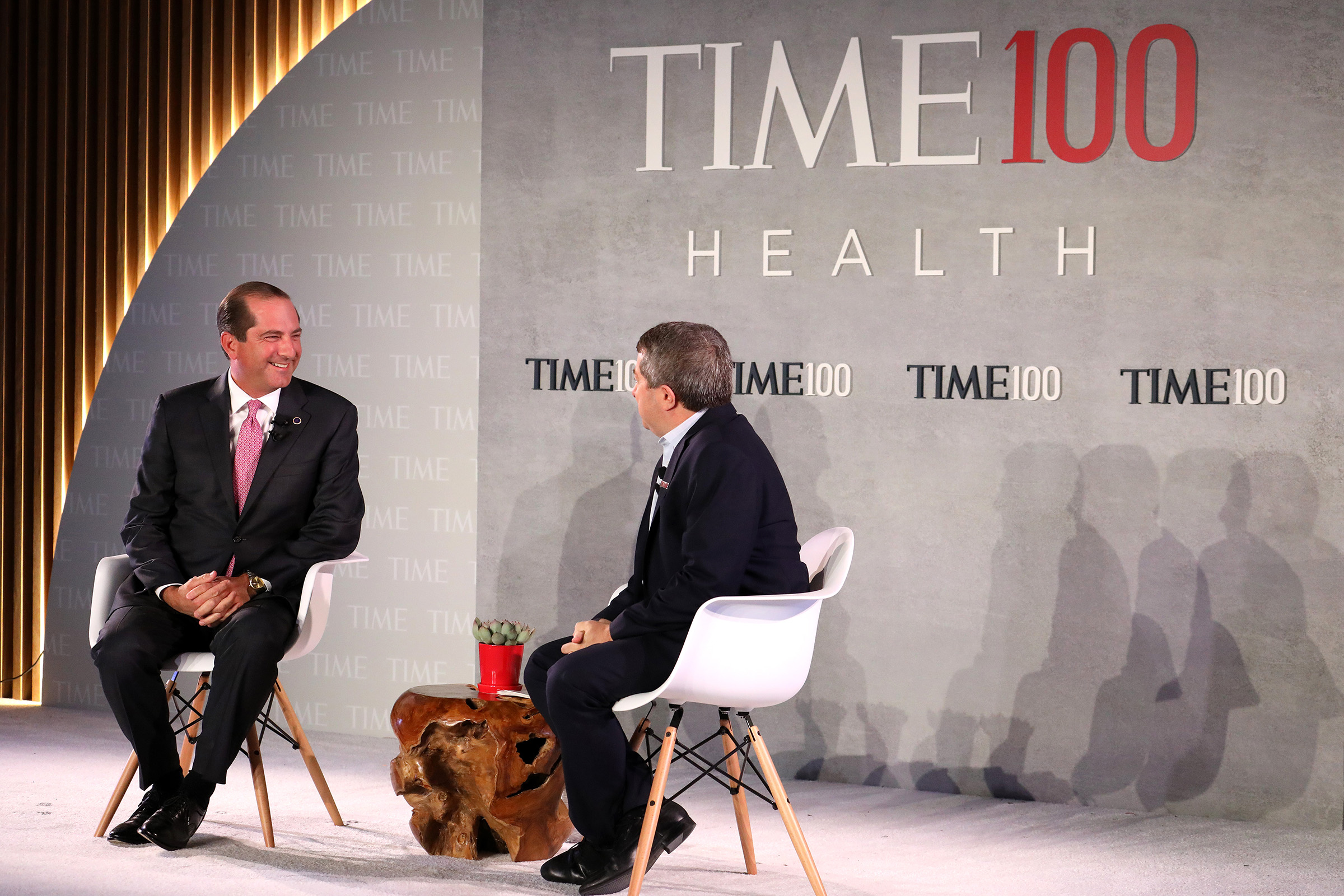U.S. Department of Health and Human Services (HHS) Secretary Alex Azar called Medicare for All a “utopian” and “simplistic” approach to health care that would actually become “Medicare for None” during an interview at the the TIME 100 Health Summit on Thursday.
“The reason we’re seeing the attractiveness of simplistic notions like Medicare for All is that the Affordable Care Act (ACA) made a lot of promises. It didn’t deliver on them,” Azar said. But, he argued, most Americans “aren’t beguiled by utopian visions of healthcare. The American people actually take a fairly incremental approach to healthcare,” preferring to gradually improve current systems rather than overhauling them entirely.
Azar — who runs the federal department that oversees, among other offices, the Centers for Medicare and Medicaid Services, the Centers for Disease Control and Prevention and the National Institutes of Health — was interviewed at the Health Summit by TIME Editor-in-Chief Edward Felsenthal.
When asked by Felsenthal whether health care is a human right, as Democrats like Elizabeth Warren have argued, Azar said HHS wants everyone to have “access to affordable health care that meets your needs, [and] that’s the highest quality that can possible be delivered…what bows you wrap around that, I don’t know.” He argued that, though the U.S. needs better individual insurance market solutions, many people are satisfied with their coverage through employers, unions or programs like Medicare.

Azar also discussed the Trump Administration’s larger vision for health care, which hinges on a system that is “personalized, affordable and patient-centric.” He said HHS will continue to drive down costs under the ACA, and work to solve existing public-health crises including youth vaping, opioid addiction, maternal mortality and geographic disparities in health.
And while Azar said HHS is working hard to drive down everyday health care costs, he said paying for life-saving but expensive cures, like gene therapy, is also a priority for the department.
“How do we appropriately pay for them, appropriately price them?” he asked. “Because they’re coming. Thank God they’re coming.”
More Must-Reads from TIME
- Cybersecurity Experts Are Sounding the Alarm on DOGE
- Meet the 2025 Women of the Year
- The Harsh Truth About Disability Inclusion
- Why Do More Young Adults Have Cancer?
- Colman Domingo Leads With Radical Love
- How to Get Better at Doing Things Alone
- Michelle Zauner Stares Down the Darkness
Write to Jamie Ducharme at jamie.ducharme@time.com